If there’s an author who has mastered the craft of capturing the complexity of human emotions and the intricacies of relationships, it’s Jodi Picoult. Her nuanced storytelling approach and riveting narratives have won her millions of fans worldwide.
From tackling difficult societal issues to exploring the depths of familial bonds, Picoult’s books are nothing short of transformative journeys. This blog post is your guide to the literary world of Jodi Picoult, presenting all her books in chronological order to provide a comprehensive reading pathway.

Jodi Picoult Books in Order (Quick List)
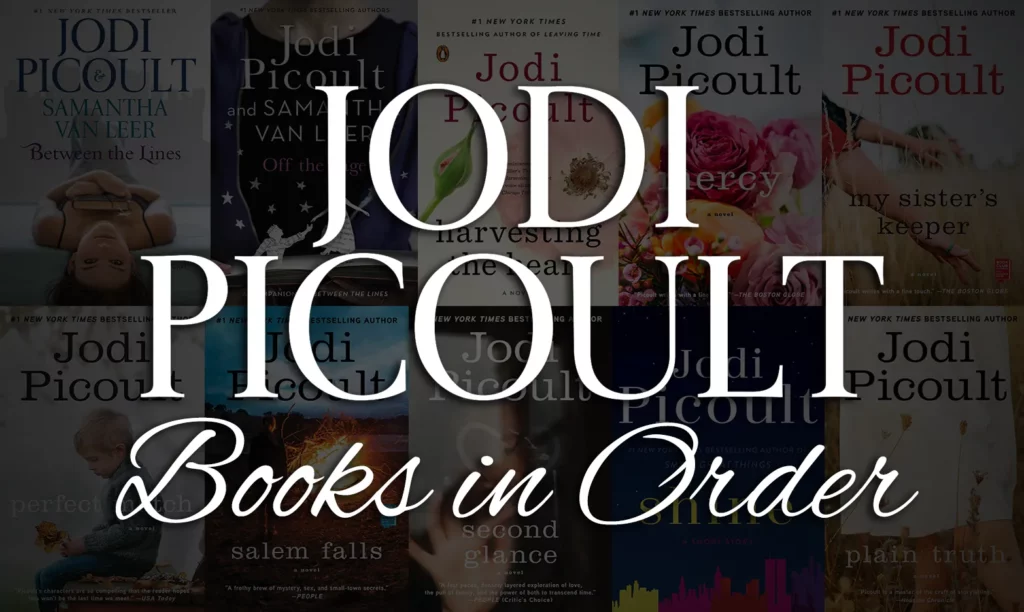
- “Songs of the Humpback Whale” (1992)
- “Harvesting the Heart” (1993)
- “Picture Perfect” (1995)
- “Mercy” (1996)
- “The Pact” (1998)
- “Keeping Faith” (1999)
- “Plain Truth” (2000)
- “Salem Falls” (2001)
- “Perfect Match” (2002)
- “Second Glance” (2003)
- “My Sister’s Keeper” (2004)
- “Vanishing Acts” (2005)
- “The Tenth Circle” (2006)
- “Nineteen Minutes” (2007)
- “Change of Heart” (2008)
- “Handle With Care” (2009)
- “House Rules” (2010)
- “Sing You Home” (2011)
- “Lone Wolf” (2012)
- “The Storyteller” (2013)
- “Leaving Time” (2014)
- “Small Great Things” (2016)
- “A Spark of Light” (2018)
- “The Book of Two Ways” (2020)
- “Wish You Were Here” (2021)
Who is Jodi Picoult?
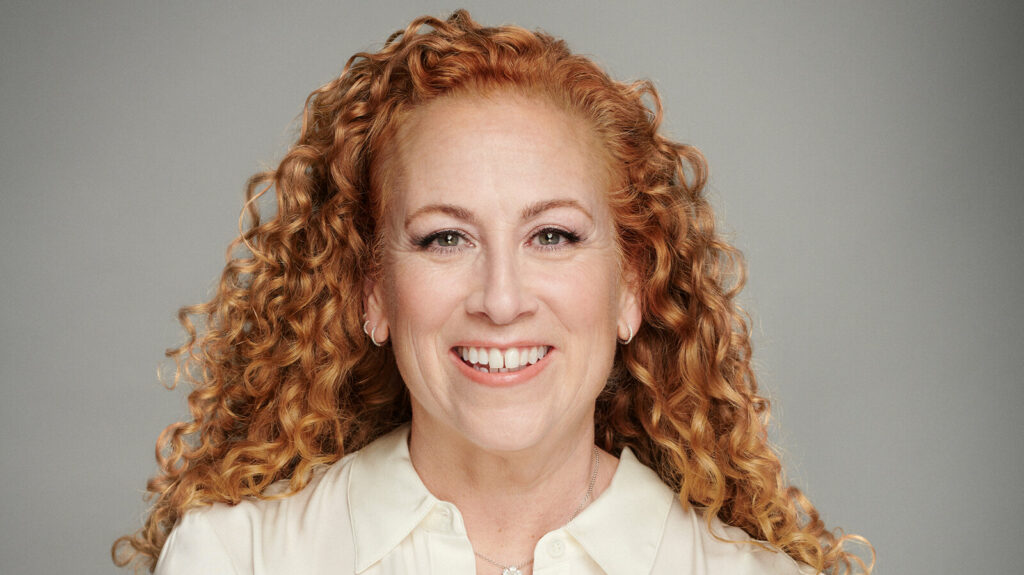
Jodi Picoult is a critically acclaimed, best-selling American author known for her thought-provoking novels that delve into contentious ethical issues. Born on May 19, 1966, she has penned more than 20 novels and several short stories that have won her numerous awards and recognitions.
Quick Fact: Her books, translated into 34 languages, have a global readership and have often graced The New York Times Best Seller list.
Picoult’s books are a reflection of her compelling storytelling style, where she introduces readers to complex characters, fraught relationships, and challenging situations. She is praised for her ability to get under the skin of the human experience and the depths of moral dilemmas.
Whether it’s the story of a teenage girl suing her parents for medical emancipation in “My Sister’s Keeper” or the exploration of race and privilege in “Small Great Things,” Picoult consistently provokes thought, invites empathy, and challenges perspectives.
Her mastery in narrating gripping tales has firmly established her as a significant voice in contemporary literature.
Here’s a summary of every book:
1. “Songs of the Humpback Whale” (1992)
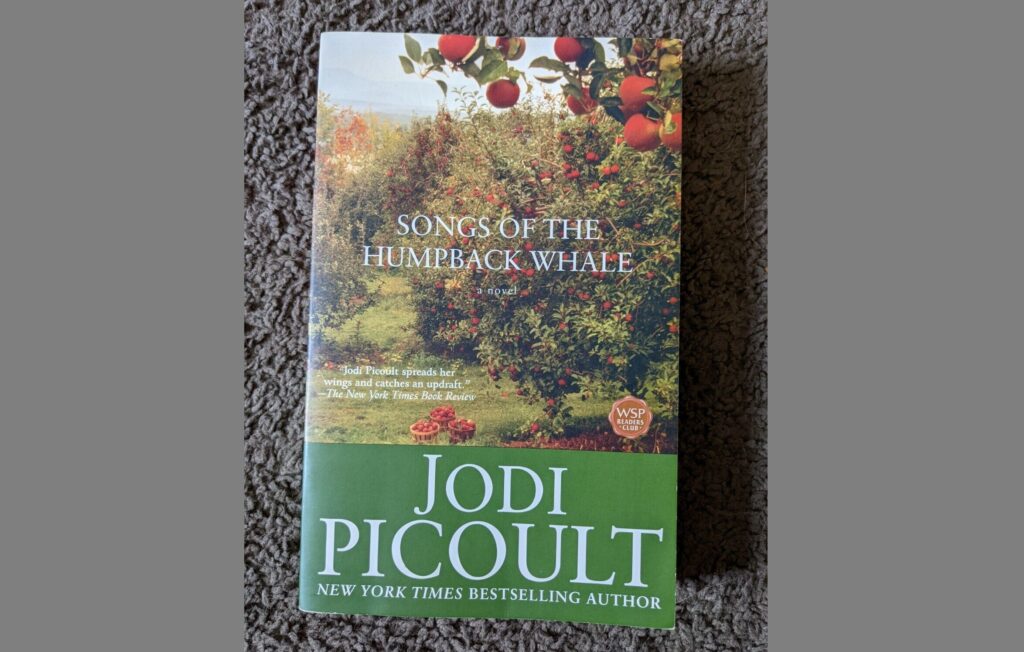
In her debut novel, Picoult weaves a compelling tale of family dynamics, love, and finding oneself. The story is narrated from the perspectives of five characters, centered around Jane Jones and her daughter Rebecca.
Jane, feeling stifled in her marriage to a distant, work-absorbed marine biologist Oliver, embarks on a cross-country trip with Rebecca, leaving behind her home and husband. The journey becomes a transformative one as they encounter new people and experiences.
The novel utilizes nonlinear storytelling, with chapters jumping back and forth in time and place, mimicking the movement and song patterns of humpback whales, reflecting Oliver’s study.
2. “Harvesting the Heart” (1993)
This is the story of Paige O’Toole, who, haunted by her mother’s abandonment when she was five, leaves her past and her new husband Nicholas behind in search of answers. Paige’s journey takes her through various ordeals, and she grapples with the fear of turning into her mother as she becomes one herself.
Meanwhile, Nicholas, a heart surgeon, is left to handle their newborn son alone. The book provides an insightful look into the complexities of parenthood, marital dynamics, and the struggle of confronting and overcoming past traumas.
3. “Picture Perfect” (1995)
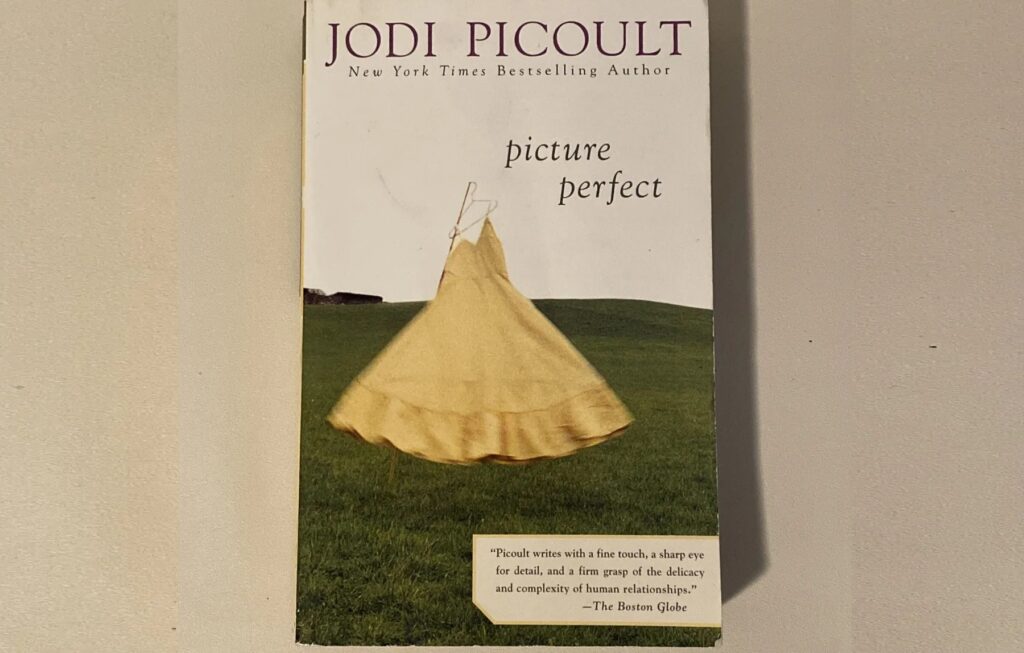
“Picture Perfect” revolves around renowned anthropologist Cassie Barrett, who wakes up in a graveyard with no memory of who she is. Aided by Native American police officer Will Flying Horse, she gradually regains her memory, recalling her glamorous life and her marriage to Hollywood superstar Alex Rivers.
However, beneath the surface of this picture-perfect life lies a dark reality of domestic abuse. As Cassie grapples with her situation, the narrative dives deep into the cycle of violence, the public versus private face of celebrities, and the courage it takes to break free from destructive relationships.
4. “Mercy” (1996)
Set in the small town of Wheelock, Massachusetts, “Mercy” tells the story of Police Chief Cameron McDonald and his cousin Jamie. When Jamie confesses to the mercy killing of his terminally ill wife, the town is split over the issue of euthanasia. Simultaneously, Cameron is facing his moral quandaries, caught in an extramarital affair.
Picoult skillfully navigates the ethical complexities of mercy killing, infidelity, and the consequences of the choices one makes.
5. “The Pact” (1998)
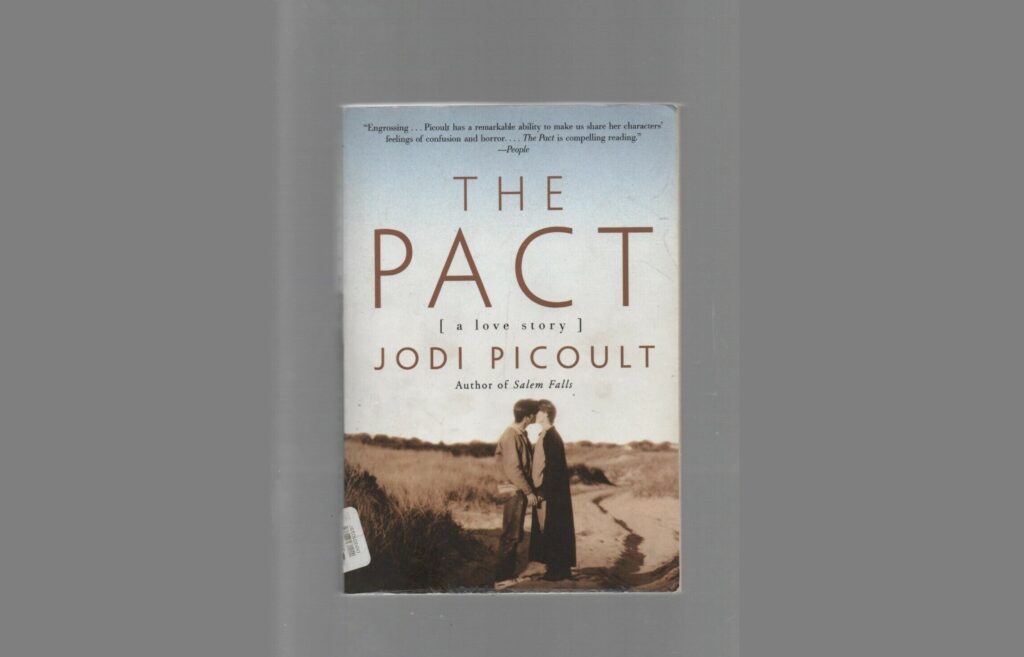
“The Pact” is a heart-wrenching story of two families, the Harts and the Golds, who have lived next door to each other for years. Their children, Chris Harte and Emily Gold, seemingly have a perfect relationship and are destined to be together forever.
However, this idyllic story takes a grim turn when Emily is found dead from a gunshot wound, and Chris claims they had a suicide pact. Picoult brilliantly explores the darkness lurking beneath picture-perfect suburban lives, teenage love, and the lengths to which one might go to protect those they love.
The narrative delves deep into family ties, community, loyalty, and the ambiguous nature of truth.
6. “Keeping Faith” (1999)
This novel revolves around Mariah and her daughter Faith, who starts hearing divine voices and seeing God after her parents’ tumultuous divorce. These inexplicable occurrences make Faith a nationwide sensation, attracting the attention of both skeptics and believers. While some see her as a prophet, others see a child manipulated for gains.
As Mariah fights for custody of Faith, she also battles to understand what’s truly happening with her daughter. “Keeping Faith” explores themes of religion, belief, motherhood, and the media’s influence on public perception.
7. “Plain Truth” (2000)

“Plain Truth” takes us into the heart of an Amish community when a newborn’s body is found in the barn of an eighteen-year-old Amish girl, Katie Fisher. Katie, who denies the pregnancy, is charged with infanticide. Ellie Hathaway, a big-city defense attorney, comes to her aid, trying to get to the bottom of this case while navigating the complexities of the Amish culture.
Quick Fact: The book raises questions about cultural differences, justice, and the lengths one might go to protect their own.
8. “Salem Falls” (2001)
Jack St. Bride, a former teacher, arrives in Salem Falls hoping to escape his past marked by a student’s false accusations. However, when a similar accusation is leveled against him in Salem Falls, his past resurfaces. As the case unfolds, the narrative navigates themes of power, truth, and redemption.
“Salem Falls” is an exploration of the lingering effects of rumors, the precariousness of reputation, and the challenge of starting over.
9. “Perfect Match” (2002)

Assistant District Attorney Nina Frost is used to prosecute child molesters, ensuring they receive maximum sentencing. But when her five-year-old son Nathaniel becomes a victim of sexual abuse, her personal and professional worlds collide violently.
Taking justice into her own hands, Nina shoots the alleged perpetrator in the courtroom, bringing into question the justice system she once championed. The novel confronts the limits of the legal system, the desperate lengths a mother would go to protect her child, and the blurred lines between justice and revenge.
10. “Second Glance” (2003)
“Second Glance” is a blend of a ghost story and a love story. Ross Wakeman, a man desperate to die due to his unbearable grief over his late fiancée, moves to Comtosook, Vermont, known for ghostly happenings. Here, he encounters a series of inexplicable events tied to a proposed development site, believed to be an ancient Abenaki Indian burial ground.
Picoult deftly blends past and present, science and faith, and love and grief in a narrative that questions whether the boundary between life and death might not be as impermeable as we think.
11. “My Sister’s Keeper” (2004)
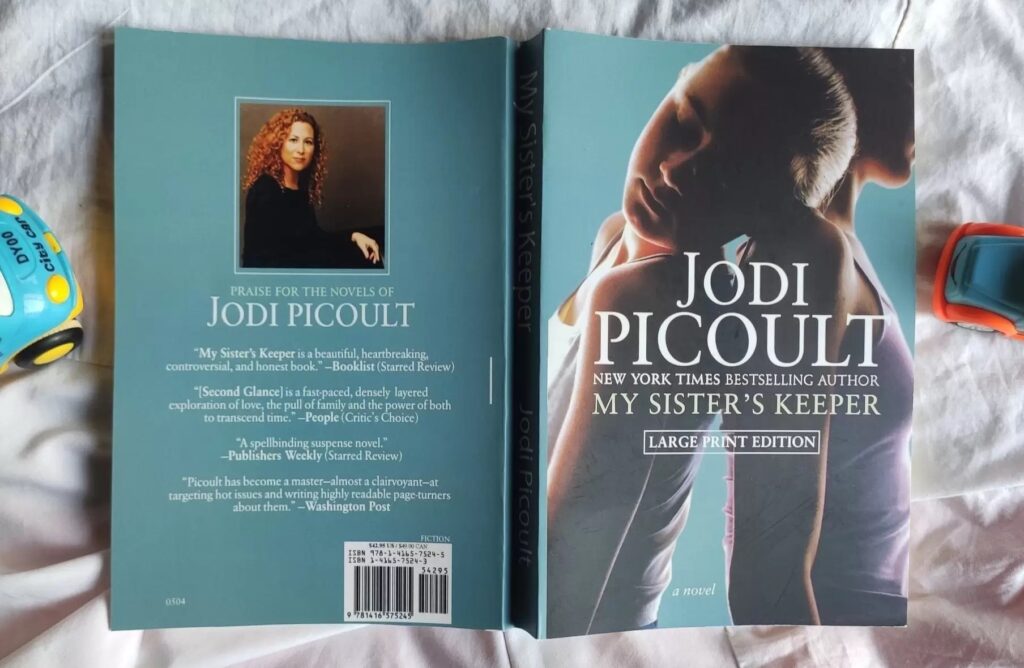
This emotionally charged novel tells the story of the Fitzgerald family, whose youngest daughter, Kate, suffers from leukemia. Her sister, Anna, was genetically engineered to be a perfect donor match for Kate, and her life becomes a series of invasive medical procedures to save her sister.
However, when she is expected to donate a kidney, thirteen-year-old Anna hires a lawyer to fight for medical emancipation. The story explores the ethical dilemma of genetically designing children, the impact of serious illness on a family, and an individual’s rights to their body.
12. “Vanishing Acts” (2005)
Delia Hopkins leads a comfortable life in rural New Hampshire with her young daughter and her fiancé. However, her life turns upside down when her father is arrested for kidnapping her decades ago. As Delia confronts her past, she grapples with the blurred lines between truth and memory.
The story moves between the arid Arizona desert and a New Hampshire town, unraveling the mysteries of Delia’s past. “Vanishing Acts” is a thought-provoking narrative about the power of memory, identity, and the bonds of love.
13. “The Tenth Circle” (2006)
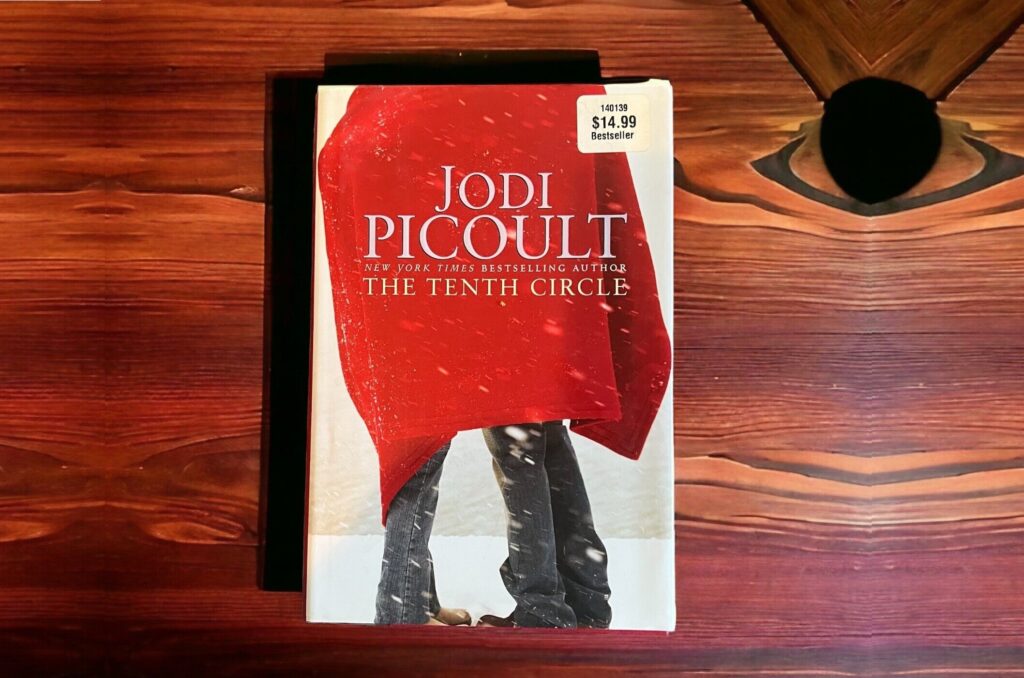
When Trixie Stone accuses her ex-boyfriend of rape, her parents, Daniel and Laura, find their world collapsing. As a comic book artist, Daniel finds himself using Dante’s Inferno as a form of catharsis. As the story unfolds, it brings to light dark secrets from their pasts and tests the boundaries of love, family, and revenge.
Quick Fact: “The Tenth Circle” is a powerful narrative that explores the relationship between parents and children and the profound effects of past secrets on present lives.
14. “Nineteen Minutes” (2007)
In the aftermath of a horrifying school shooting, the small town of Sterling, New Hampshire, is left reeling. The accused shooter, Peter Houghton, was a victim of bullying for years. As the community tries to understand what led to this event, the narrative dives into the world of high school dynamics, bullying, and the dire consequences of feeling marginalized.
“Nineteen Minutes” raises questions about peer pressure, identity, and the potential repercussions of alienation and harassment.
15. “Change of Heart” (2008)
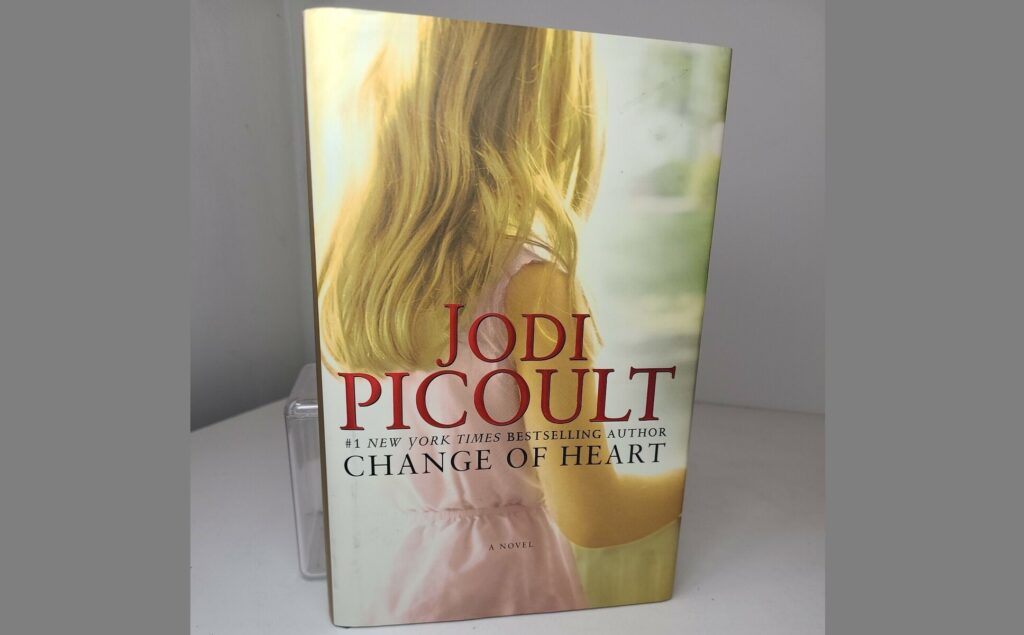
Shay Bourne, New Hampshire’s first death row prisoner in 69 years, has one last request—to donate his heart to the sister of his victim. This narrative explores themes of redemption, love, and the intricacies of the human heart, both literally and metaphorically.
Picoult delves into the controversial topic of capital punishment, the battle between science and religion, and the complex dynamics of grief and forgiveness.
16. “Handle With Care” (2009)
Charlotte and Sean O’Keefe’s daughter, Willow, was born with Osteogenesis Imperfecta, a severe bone disorder. The financial and emotional strains of Willow’s care impact their family. When a lawsuit for wrongful birth offers a solution to their financial struggles, it also threatens to tear their family apart.
The narrative explores the implications of such a lawsuit, the price of a life, the lengths a parent will go to protect their child, and the challenge of loving someone who is extraordinary.
17. “House Rules” (2010)
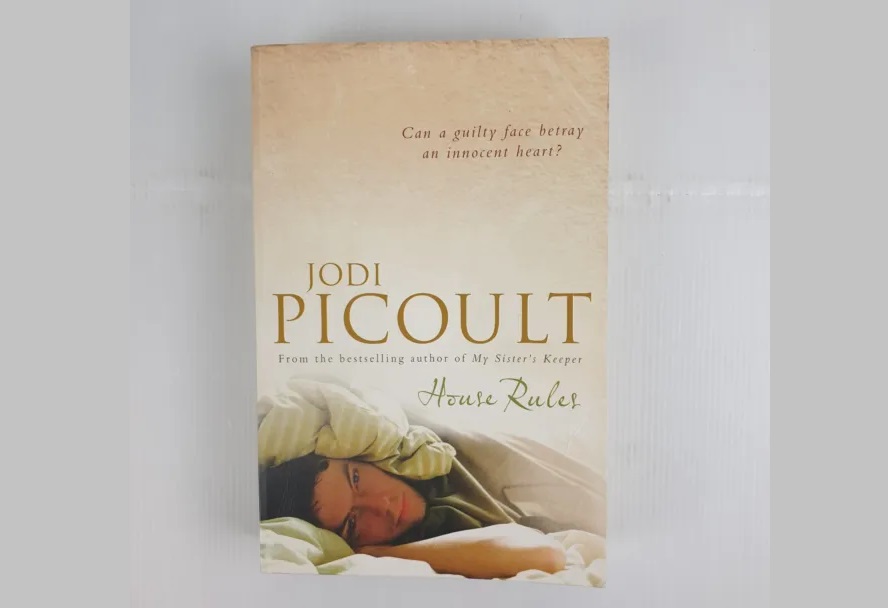
“House Rules” revolves around Jacob Hunt, a teenager with Asperger’s Syndrome, who has a keen interest in forensic analysis. When his social skills tutor Jess is found dead, and Jacob’s fascination with crime scene investigation techniques makes him a suspect, the Hunt family faces a legal battle that threatens to tear them apart.
This gripping novel delves into the world of autism, the dynamics of a family with a special needs child, and the justice system’s handling of defendants with disabilities.
18. “Sing You Home” (2011)
Music therapist Zoe Baxter’s latest pregnancy ends in a stillbirth, causing her marriage to Max to disintegrate. As Zoe finds love again with Vanessa, she dreams of starting a family, leading to a battle with Max over their frozen embryos.
The narrative explores the definition of family, human rights, and the clash between religious beliefs and the LGBT community’s fight for equality, set against the backdrop of music’s power to heal.
19. “Lone Wolf” (2012)
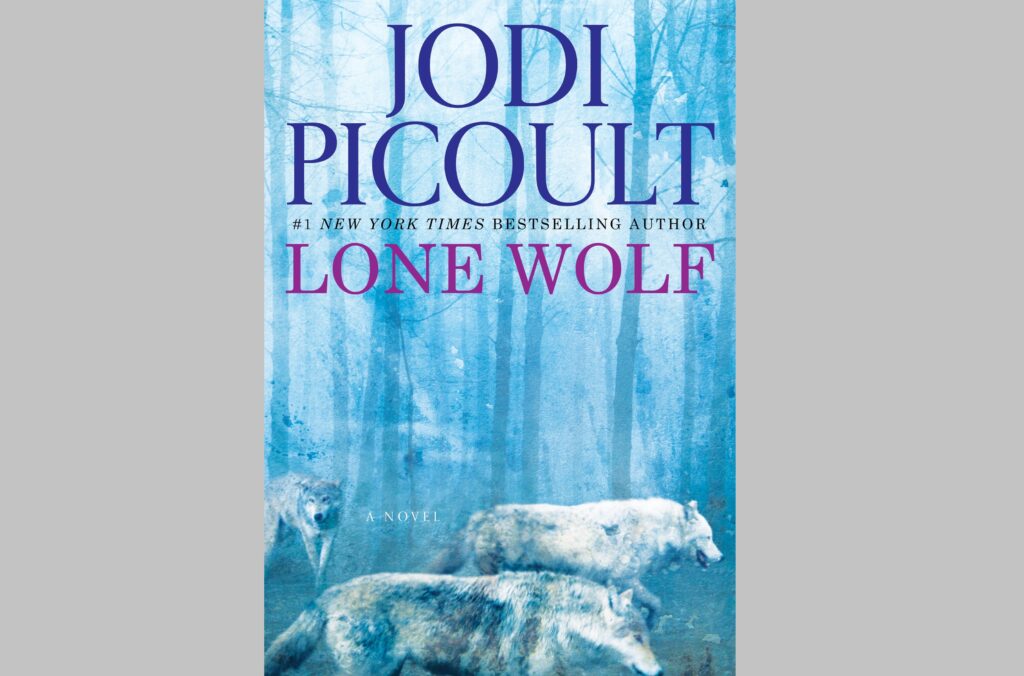
“Lone Wolf,” tells the story of Luke Warren, a man who has devoted his life to living with wolves, often at the expense of his family. When a car accident leaves him in a coma, his estranged children, Edward and Cara, must decide his fate, sparking a legal battle that brings their fractured family to the forefront.
The novel explores themes of family dynamics, the difficult decisions about end-of-life care, and the fascinating parallels between human and animal behavior.
20. “The Storyteller” (2013)
Sage Singer, a baker grappling with her own grief, befriends an elderly man in her grief support group. When he reveals his past as a Nazi SS officer, he requests Sage, a Jewish woman, to kill him as atonement.
As Sage unravels the truth, she must grapple with her own trauma and the ethics of revenge, forgiveness, and justice. “The Storyteller” is a compelling exploration of the Holocaust’s lasting impact, the scars of war, and the redemptive power of storytelling.
21. “Leaving Time” (2014)
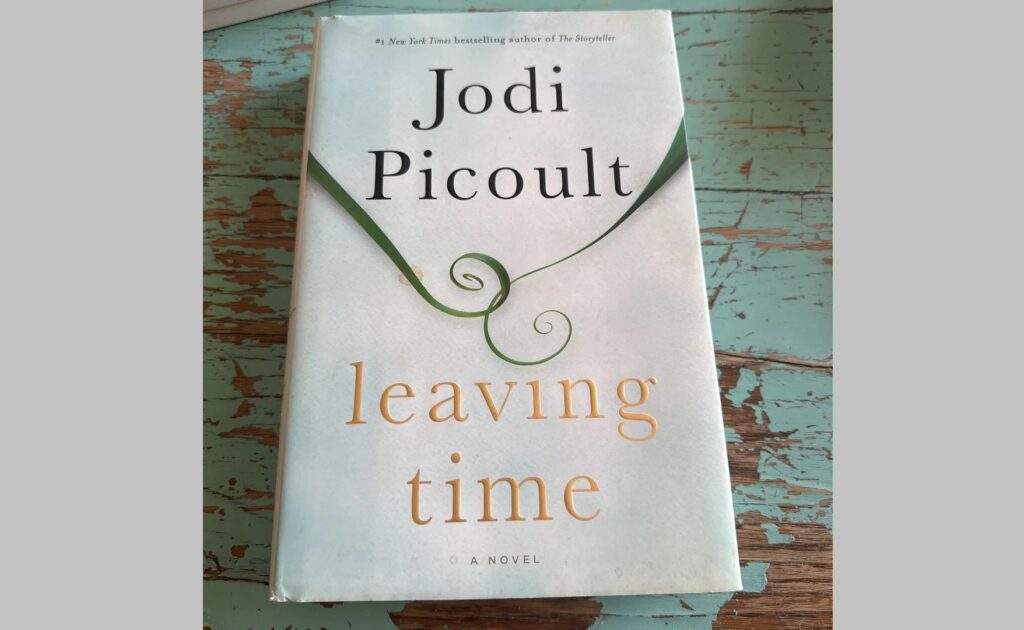
“Leaving Time” is the story of Jenna Metcalf, a young girl who, years after her mother’s mysterious disappearance, is still seeking answers. Her mother, Alice Metcalf, was a scientist studying the grief among elephants, a theme that becomes central to the narrative.
Jenna enlists the help of a psychic and a private detective, leading them on an emotional journey that intertwines grief, the bond between mother and child, and the mysteries of the animal kingdom.
22. “Small Great Things” (2016)
Ruth Jefferson, a black labor and delivery nurse with decades of experience, faces a racial discrimination lawsuit after a newborn baby in her care dies. The baby’s parents are white supremacists who’d requested Ruth not touch their child. As Ruth stands trial, she confronts her own assumptions about power, privilege, and race.
This thought-provoking narrative examines systemic racism, justice, and the idea that small actions can precipitate great change.
23. “A Spark of Light” (2018)
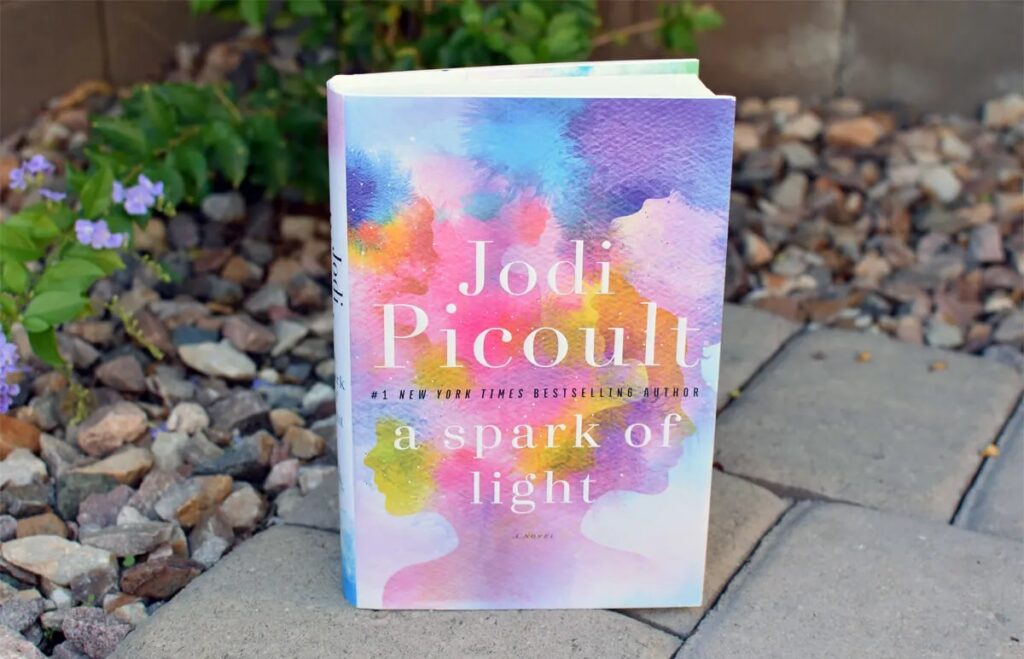
Set in a women’s reproductive health services clinic, the narrative unfolds backward, starting from the end of a hostage crisis. Each chapter peels a layer off the complex circumstances and personal histories that have brought each character to this place, shedding light on the divisive issue of abortion rights.
Quick Fact: “A Spark of Light” is a thought-provoking exploration of women’s rights, single parenthood, and the consequences of actions and beliefs.
24. “The Book of Two Ways” (2020)
The story follows Dawn Edelstein, who survives a plane crash and finds herself at a crossroads between returning to her family and the life she has built or venturing into the path not taken. The narrative alternates between her life in Boston, where she works as a death doula, and her past in Egypt, studying the Book of Two Ways, an ancient guide to the afterlife.
This novel contemplates love, choices, sacrifice, and the concept of multiverses.
25. “Wish You Were Here” (2021)
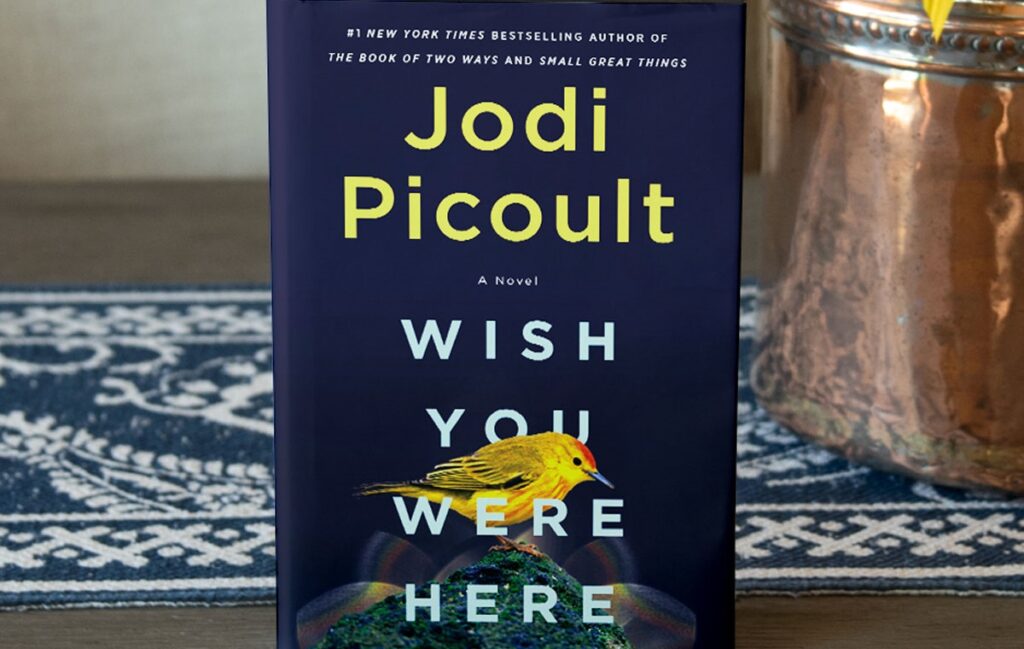
Diana O’Toole is perfectly on track with her life plan engaged to a doctor, a promising career in art history, but everything derails when a pandemic hits. Stuck in the Galápagos while her fiancé is quarantined in New York, Diana is forced to reconsider her meticulously planned future.
“Wish You Were Here” is a reflection on the fragility of life, the power of love, and the courage it takes to change. It explores the human spirit’s resilience in a world turned upside down by the COVID-19 pandemic.
How many books has Jodi Picoult written so far?
Jodi Picoult is a prolific writer known for her insightful, thought-provoking novels. She has written 26 novels, from her first published work, “Songs of the Humpback Whale” in 1992, to “Wish You Were Here” in 2021. Picoult may have written additional novels or other works since then.
Jodi Picoult Books in Order of Publication
- Songs of the Humpback Whale (1992)
- Harvesting the Heart (1993)
- Picture Perfect (1995)
- Mercy (1996)
- The Pact (1998)
- Keeping Faith (1999)
- Plain Truth (2000)
- Salem Falls (2001)
- Perfect Match (2002)
- Second Glance (2003)
- My Sister’s Keeper (2004)
- Vanishing Acts (2005)
- The Tenth Circle (2006)
- Nineteen Minutes (2007)
- Change of Heart (2008)
- Handle With Care (2009)
- House Rules (2010)
- Sing You Home (2011)
- Lone Wolf (2012)
- The Storyteller (2013)
- Leaving Time (2014)
- Small Great Things (2016)
- A Spark of Light (2018)
- The Book of Two Ways (2020)
- Wish You Were Here (2021)
Can I read Jodi Picoult’s books out of order?
As for reading order, Picoult’s novels are standalone works, each with its own distinct characters and plot. They do not form a series and thus can be read in any order you prefer. You may choose to read them based on their publication order, or you might prefer to select them based on the themes and topics that interest you most.
Are any of Jodi Picoult’s books a series?
As of my knowledge cutoff in September 2021, all of Jodi Picoult’s novels are standalone works. They each explore different characters, narratives, and themes, ranging from ethical dilemmas in medicine to courtroom dramas and explorations of complex family dynamics.
While you might find recurring themes in her work, such as moral ambiguity and family relationships, each book is a separate story and does not continue or relate to the plots of her other books.
What books by Jodi Picoult became movies?
Several of Jodi Picoult’s novels have been adapted into films:
- “The Pact” (2002) – This television film aired on Lifetime, with the story centering around the pact between two teenagers to commit suicide together.
- “Plain Truth” (2004) – This television film, also on Lifetime, features Mariska Hargitay and takes on the story of an Amish woman accused of murdering her newborn child.
- “The Tenth Circle” (2008) – This film adaptation for Lifetime involves a family shaken up by their daughter’s rape accusation and ties in a parallel storyline relating to Dante’s Inferno.
- “My Sister’s Keeper” (2009) – Perhaps the most well-known of Picoult’s book-to-film adaptations, this Hollywood movie features Cameron Diaz and Abigail Breslin. The story revolves around a young girl who seeks legal emancipation from her parents who expect her to donate her kidney to her sister.
- “Salem Falls” (2011) – Another Lifetime movie, this film follows a man trying to start a new life in a small town, only to be accused of a crime he didn’t commit.
Expert Tip: It’s worth noting that while these films are based on Picoult’s novels, they may not follow the books precisely. Film adaptations often need to make changes due to the different nature of the medium.
What category is Jodi Picoult?
Jodi Picoult is typically categorized under contemporary fiction. Her books often explore ethical issues and dilemmas through compelling storytelling and well-researched backgrounds. They fall into subcategories like women’s fiction, literary fiction, and domestic fiction, given their focus on personal relationships, family dynamics, and emotional journeys.
She is also well-known for incorporating elements of courtroom drama and suspense into her narratives. Many of her books feature legal trials, which tie into the moral or ethical issues at the heart of the story.
Picoult’s novels are lauded for their well-rounded characters, insightful examination of complex issues, and the impressive amount of research that goes into each book. Whether she’s writing about medical ethics, law, or elephant grief, she immerses herself in the subject matter to provide an authentic and engaging reading experience.
What are some of the recurring themes across Jodi Picoult’s works?
Jodi Picoult’s novels often revolve around ethical dilemmas, moral ambiguity, and the complexity of human relationships. These dilemmas often play out within family dynamics, providing a deep exploration of love, responsibility, and sacrifice.
For instance, “My Sister’s Keeper” grapples with the ethical quandary of creating a genetically engineered sibling as a medical resource. “Small Great Things” takes a hard look at systemic racism and privilege, forcing readers to question their own biases and societal norms.
“Nineteen Minutes” explores the aftermath of a school shooting, delving into themes of bullying, marginalization, and parental responsibility.
In addition, several of Picoult’s novels feature legal trials that tie into the central moral or ethical issue. These courtroom dramas serve to heighten the tension and further explore the themes at play.
For example, in “House Rules”, the legal trial of an individual with Asperger’s Syndrome opens up discussions on neurodiversity and the justice system’s handling of defendants with disabilities.
How does Picoult’s background influence her writing?
Jodi Picoult’s educational background in creative writing and education, coupled with her personal experiences as a mother and her extensive research into various subjects, significantly influence her work. Her novels often involve complex familial relationships and moral dilemmas, which she writes with emotional depth and psychological insight.
Moreover, Picoult is known for the extensive research she undertakes for each of her novels.
Whether it’s spending time in a high school to understand teenage dynamics, studying law to accurately depict courtroom scenes, or interviewing former Nazis to create a compelling Holocaust narrative, her commitment to accuracy and authenticity enriches her storytelling, lending it a sense of realism and grounding it in the intricacies of real-world issues.
How does Jodi Picoult’s writing style contribute to her novels?
Jodi Picoult is known for her multi-perspective narratives, where the story is often told from several characters’ viewpoints. This approach allows readers to explore the situation from different angles, providing a more comprehensive and nuanced understanding of the issues at hand.
For instance, in “Small Great Things”, the story is told from the perspectives of a black nurse, a white supremacist, and a defense attorney. This multi-faceted narrative structure provides a more profound exploration of the novel’s central theme of racism, allowing readers to see the situation from vastly different perspectives.
Furthermore, Picoult’s writing style is often straightforward yet emotionally evocative. Her ability to create authentic characters and emotionally charged situations pulls readers into the story, making them think deeply about the complex issues she presents.
What impact has Jodi Picoult’s work had on contemporary fiction?
Jodi Picoult has made a significant impact on contemporary fiction, becoming a prominent figure in the genre due to her thought-provoking exploration of ethical and moral dilemmas. Her unique blend of domestic drama, suspense, and courtroom thrillers has not only attracted a vast readership but also sparked conversations about difficult and often polarizing topics.
Through her novels, Picoult encourages readers to examine their own beliefs and consider different perspectives. This capacity to inspire introspection and dialogue has helped her work transcend mere entertainment, turning her novels into catalysts for discussions on important social, ethical, and moral issues.
How are Jodi Picoult’s books received critically and commercially?
Jodi Picoult is a commercially successful author, with several of her books making it to the New York Times Best Seller list. Her novel “My Sister’s Keeper” was not only a bestseller but was also adapted into a Hollywood film, a further testament to her commercial success.
Critically, Picoult’s work receives mixed reviews. Some critics praise her ability to tackle complex, controversial topics with nuance and sensitivity, and her capacity to create well-rounded, believable characters. Her meticulous research for each book is often applauded, as is her ability to weave compelling narratives that keep readers engaged.
However, some critics argue that her books can sometimes veer toward melodrama or formulaic storytelling. Despite the criticism, Picoult’s ability to spark dialogue on ethical issues and her vast readership testify to her impactful presence in contemporary fiction.
How does Jodi Picoult manage to keep her readers engaged throughout her novels?
Jodi Picoult employs several narrative techniques to keep her readers engaged. First, her novels often center around a controversial or emotionally charged issue, which immediately piques the reader’s interest.
Second, her use of multiple perspectives keeps the narrative dynamic and allows for a multi-dimensional view of the situation. This narrative structure also creates suspense, as the reader gets different pieces of the story from different characters, keeping them hooked until the end.
Lastly, Picoult often includes unexpected twists or revelations in her novels. These surprising elements maintain the narrative tension and keep readers eager to find out what happens next.
What makes Jodi Picoult’s novels suitable for book clubs?
Jodi Picoult’s novels make excellent book club picks due to the thoughtful and often provocative topics they explore. The ethical dilemmas and moral questions posed in her books provide plenty of material for in-depth discussions. Her ability to create complex, relatable characters also allows readers to delve into character analyses and explore different viewpoints.
Additionally, the fact that her novels often draw from real-world issues such as racism, school shootings, or medical ethics – allows book club discussions to extend beyond the books themselves and engage with broader social debates.
Hence, book clubs often choose Jodi Picoult’s novels not only for their compelling narratives but also for their capacity to inspire meaningful and thought-provoking discussions.
How does Jodi Picoult choose the topics for her books?
Jodi Picoult is known for selecting thought-provoking, often controversial, topics for her novels. She has shared in interviews that she tends to pick topics that she herself is curious about or doesn’t fully understand. She is drawn to moral and ethical dilemmas and enjoys exploring them from all angles, seeking to understand different perspectives.
She’s not afraid to tackle difficult or uncomfortable subjects, from school shootings to racism, and she does so with sensitivity and depth.
What does the research process look like for Picoult when writing a new novel?
Picoult is known for her thorough and meticulous research. When she begins a new project, she immerses herself in the topic, seeking out experts in the field, conducting extensive interviews, reading widely, and even participating in experiences relevant to the subject matter.
For instance, while writing “Sing You Home,” a book that centers around same-sex rights, Picoult interviewed gay couples, spoke with lawyers who specialize in gay rights, and attended a gay pride event to gather different perspectives and experiences. This commitment to research gives her books a sense of authenticity and depth.
How have Picoult’s books influenced societal discussions about ethical dilemmas?
Picoult’s books often trigger conversations about ethical dilemmas and controversial issues, as her stories tend to revolve around topics that society grapples with. For instance, “My Sister’s Keeper” led to discussions about the ethical implications of creating a genetically engineered child, while “Small Great Things” triggered conversations about race and privilege.
By exploring these complex issues from multiple perspectives in a compassionate and balanced way, Picoult’s books offer readers a platform for introspection and discussion, leading to broader societal dialogues about these issues.
What kind of characters does Jodi Picoult typically create in her novels?
Jodi Picoult is renowned for creating complex, multifaceted characters in her novels. They are often confronted with ethical dilemmas or find themselves in extraordinary circumstances that test their beliefs and values. She presents these characters with compassion and understanding, delving into their emotions, motivations, and internal struggles.
This complexity and depth make her characters feel authentic and relatable, contributing to the overall impact of her stories.
How has Jodi Picoult’s writing evolved over the course of her career?
From her first novel “Songs of the Humpback Whale” to her latest works, Jodi Picoult’s writing style has continued to evolve. While her early books were more centered on family dynamics and relationships, her later works delve more deeply into ethical and moral dilemmas, often set against the backdrop of legal or medical drama.
Her narrative structure has also evolved, with her more recent books often employing multiple perspectives to provide a more nuanced view of the issue at hand. This evolution in her writing reflects her growth as a writer and her commitment to tackling complex and meaningful topics.
How do Jodi Picoult’s books appeal to a wide audience?
Jodi Picoult’s books have a broad appeal due to the universality of the themes she explores and the relatability of her characters. Her stories deal with ethical dilemmas, family relationships, and personal struggles that resonate with many readers, regardless of their background.
Moreover, her narratives are compelling and often filled with suspense, keeping readers hooked until the very end. Picoult’s ability to write about complex topics in a compassionate, accessible manner also contributes to her wide appeal.
Jodi Picoult’s successful blend of domestic drama, ethical dilemmas, and legal intrigue has set a standard in the contemporary fiction genre. Her ability to create complex characters and thought-provoking narratives, coupled with her meticulous research and compassion for her subjects, has influenced many other authors.
Her focus on “gray area” topics that don’t have easy answers has also paved the way for other writers to tackle similar subjects, enriching the landscape of contemporary fiction.
Conclusion
Jodi Picoult is a remarkable figure in the realm of contemporary fiction. Her extensive repertoire of thought-provoking, emotionally engaging novels have not only captivated millions of readers worldwide but also sparked important conversations about societal issues and ethical dilemmas.
Her distinct storytelling style, characterized by multiple perspectives and meticulous research, invites readers to explore complex issues from all angles and encourages introspection and dialogue.
From her first novel, “Songs of the Humpback Whale,” to her latest works, Picoult’s evolution as a writer and her enduring commitment to tackling significant topics with sensitivity and depth attest to her impact on the contemporary fiction genre.
Whether you’re a longtime fan or new to her work, delving into Jodi Picoult’s novels promises a compelling narrative journey that will leave you thinking long after you’ve turned the last page.
